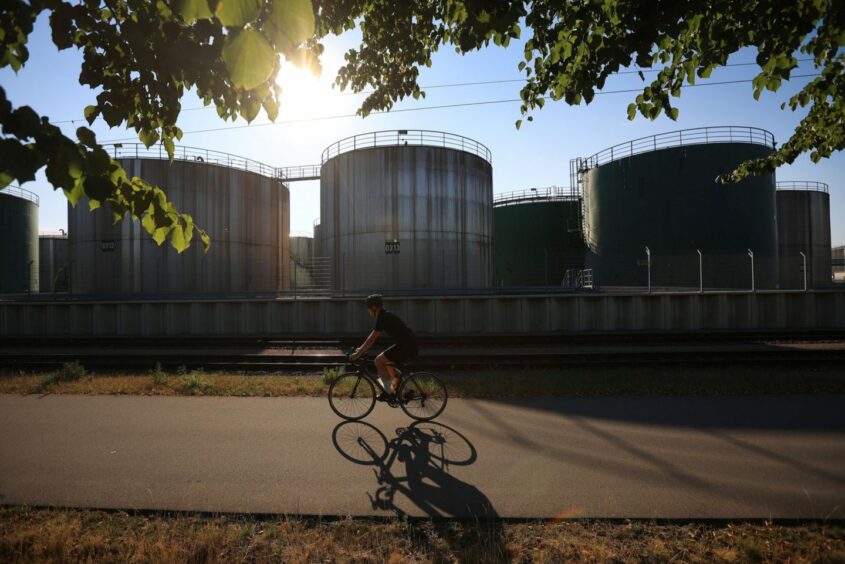
Oil held a two-day surge before an OPEC+ meeting at which the alliance is considering the biggest supply cut since 2020 to revive prices.
West Texas Intermediate futures traded near $86 a barrel after jumping almost 9% over the previous two sessions. The cartel is set to discuss reducing output by as much as 2 million barrels a day, delegates said before the group meets in Vienna later Wednesday. That’s double the volume previously flagged.
A cut of that magnitude would reflect the scale of concern from the alliance about the outlook for energy demand in the face of rapidly tightening monetary policy. The US benchmark recently capped its first quarterly loss in two years after giving up all the gains made following Russia’s invasion of Ukraine.
“A 2-million-barrel a day cut would reveal how aggressive they are about buoying prices,” said Vishnu Varathan, the Asia head of economics and strategy at Mizuho Bank Ltd. in Singapore. A reduction of 1 million to 1.5 million barrels would be an “easy call” for OPEC+ because the alliance is under-producing around those levels, he added.
Saudi Arabia may also announce an extra voluntary cut in its own oil output, potentially augmenting a group-wide agreement to curb supply, RBC Capital Markets said in a note. Riyadh has made additional production moves on several occasions since December 2016.
Prices
WTI for November delivery was steady at $86.47 a barrel at 7:30 a.m. in London.
Brent for December settlement was little changed at $91.84 a barrel.
The Organization of Petroleum Exporting Countries and its allies may also discuss a slightly smaller cut of 1.5 million barrels a day, said delegates. Even a reduction of that size is likely to draw criticism from the US and other major oil-consuming nations, which have been battling energy-driven inflation.
“I think we’re setting up for a buy-the-rumor, sell-the-fact situation,” Carley Garner, the founder of DeCarley Trading LLC, said in a Bloomberg TV interview. OPEC+ are “not meeting their quotas as it is already,” she said.
Complicating the supply outlook is a proposed price cap on Russian oil, which a US official said could be announced within weeks. While the US-led measure is designed to deprive the Kremlin of revenues for its war in Ukraine and keep crude flowing, President Vladimir Putin has threatened to withhold supply.
European Union countries reached a compromise on new Russian sanctions that includes support for a price cap, with a formal agreement expected Wednesday, said people familiar. The deal would add a ban on shipping crude from the OPEC+ producer to existing restrictions on services needed to transport it, but carve out an exemption for oil priced at or under a level set by a coalition of the Group of Seven and other nations, according to a draft of the proposal.
Recommended for you
